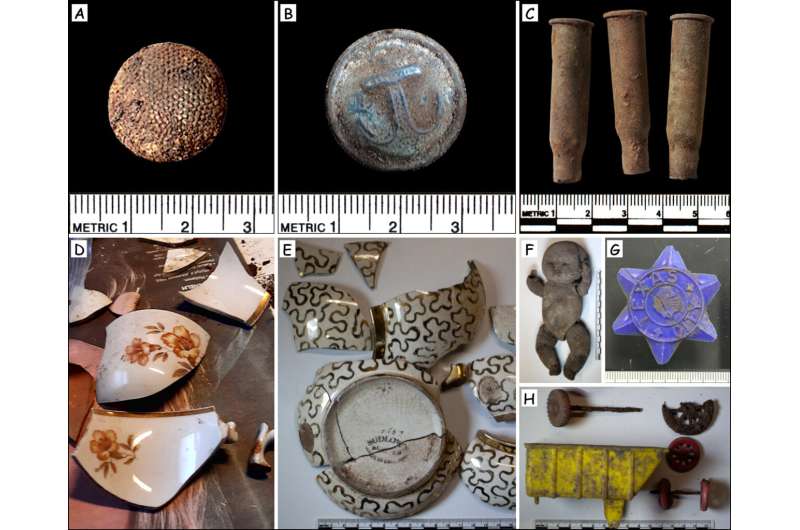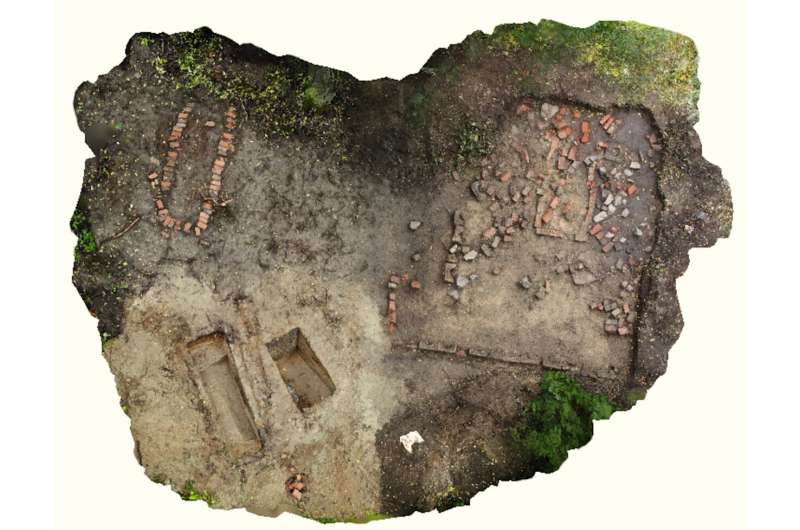This article has been reviewed according to Science X's editorial process and policies. Editors have highlighted the following attributes while ensuring the content's credibility:
fact-checked
peer-reviewed publication
trusted source
proofread
Archaeologists uncover the heritage of a marginalized community

Archaeologists have excavated the former working-class neighborhood of Vaakunakylä near Oulu, west-central Finland and interviewed its previous inhabitants, revealing the rich heritage of this marginalized community.
Vaakunakylä was initially established by German troops stationed in Finland during the Second World War and was abandoned once they retreated from Finland between 1944–45.
Finns left homeless as a result of the conflict moved into the barracks in the late 1940s, forming a community that existed largely outside of the emerging Finnish welfare state.
As a result, the neighborhood was labeled as "criminal and restless," leading to the marginalization of Vaakunakylä's populace and the eventual demolition of the settlement against the residents' wishes during the late 1980s.
"The outside perception of what might be referred to as 'bad' neighborhoods can be markedly different from the ways the communities see themselves," says lead author of the research Dr. Oula Seitsonen. "Archaeology can offer a tool to investigate the realities of life in such places."
To investigate Vaakunakylä from the point of view of its residents, Dr. Seitsonen and a team of researchers from the University of Oulu excavated at Vaakunakylä and spoke with former inhabitants of the community to collect their memories. Their results are published in the journal Antiquity.

"Archaeologies of 20th-century working-class communities and conflicts have been little-studied in Finland, and the Vaakunakylä project combines these both," states Dr. Seitsonen. "Material heritage of the Vaakunakylä area was practically unknown before our research, and by studying a former Nazi military camp turned into a Finnish working-class neighborhood we can probe various neglected societal themes."
Remains of buildings uncovered at the site highlight the efforts made by residents to improve the facilities at Vaakunakylä. Barracks were refurbished as family housing, and one was even transformed into a sauna.
Furthermore, material culture such as waste uncovered from rubbish pits reveals a higher standard of living than previously believed, with some households owning high-end porcelain sets.
The discovery of toys, children's medication and dummies suggests that children at Vaakunakylä also enjoyed a good quality of life. In this way, the project gives a glimpse into the often-silenced lives of women and children in the past.
Interviews with former residents returned a generally positive view of the community, with many stating that life in Vaakunakylä was "good enough."
Importantly, this means that the poor reputation of Vaakunakylä is largely unfounded and highlights the value of archaeological research in giving a voice to marginalized communities.
"Both the finds and the collected oral histories give a different and more nuanced picture of the Vaakunakylä community than the popular image of the area as a restless and criminal slum-like shantytown," says Dr. Seitsonen. "We hope that this can have a healing aspect when the pent-up feelings are brought to the surface and discussed in public."
More information: Oula Seitsonen et al, Contemporary archaeological perspectives on intersectional inequality in a welfare state in twentieth-century Finland, Antiquity (2024). DOI: 10.15184/aqy.2024.10
Journal information: Antiquity
Provided by Antiquity


















